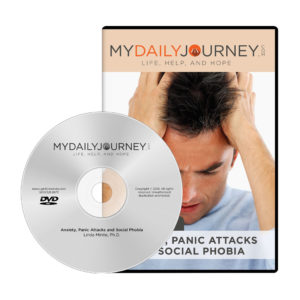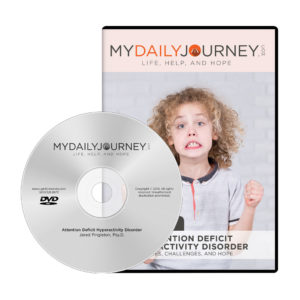Description
The AACC is pleased to offer a Virtual EMDR Basic Training in Spring 2025.
Limited Seating – Get in now!
We see trauma everywhere in our therapeutic practices and we must meet the rising need to trauma informed care. Eye Movement Desensitization and Reprocessing (EMDR) is an evidenced based treatment that has been shown to have efficacy with many different types of traumas and we are bringing this training to your computer!
As more and more of your clients are presenting with trauma, you want to do everything you can to provide effective trauma treatment. EMDR Therapy (Eye Movement Desensitization and Reprocessing) is an integrative therapy that helps people heal from traumatic events and distressing life experiences. Let us help you to develop your skills in EMDR therapy. We hope you will take our Basic EMDR Training.
Where: Online Virtual Training (Zoom)
When:
Part 1/Weekend 1: March 20-22, 2025 (9:00 AM – 5:00 PM ET each day)
Part 2/Weekend 2: May 15-17, 2025 (9:00 AM – 5:00 PM ET each day)
Consultation Hours: TBD Based on Group Schedule
CE’s Included (ASWB and NBCC)
(participation in each day over both weekends and consultations is required to complete the training)
Details:
This course is taught in two weekends. In between the two weekends, you will receive consultation and support from us, as you apply EMDR to your clients. Given that face-to-face sessions with clients may be restricted, the use of telehealth to conduct EMDR Therapy will also be introduced. Because you will have had practical field experience, when we join together for weekend 2, you will be more comfortable and confident with EMDR interventions.
Because this course is offered on a virtual platform, all class sessions and consultation sessions will be conducted via Zoom. You can anticipate the same level of care as if we were in-person with you; we will engage with you and provide the support you need.
EMDR Basic Training includes two 20-hour weekends, and an additional 10 hours of consultation. The price for consultation is included in your cost. You must attendee both weekends and the personal consultations to complete the training.
Participants must sign the Participant Agreement: Preview here
What You Get:
- 40 hours of virtual training broken up into two 20-hour weekends
- 10 hours of group consultation with one of your trainers
- EMDRIA Certificate of Completion of EMDR Basic Training
- 40 hours of Continuing Education from the AACC
Learning Objectives:
- Discuss the nature of trauma
- Explain the Adaptive Information Processing Model which informs trauma treatment
- Itemize how EMDR was developed
- Experience the structured EMDR protocols used for EMDR Resourcing.
- Practice the structured EMDR Protocols used for the processing of trauma
- Understand and delineate how EMDR helps clients to process disturbing events from the past, present, and future
Cancellation Policy
To receive a full refund of the registration fee or transfer to a later class, participants must cancel their registration no later than 30 days (02/18/2025) before the first day of the training. In certain circumstances (determined by AACC staff), cancellations or transfer requests to a later class may be issued after the 30 day (02/18/2025) window for medical emergencies defined as serious illness, injury or death to you or an immediate family member. Once the training has started, no refunds or transfers will be approved. Participants must sign the Participant Agreement: Preview here
Who is Eligible?
Licensed Mental Health Professionals:
- Qualifying Medical Doctors must be licensed to practice in their state or province.
- Qualifying Advanced Practice Registered Nurses must have a Master of Science in Nursing (or higher) with a specialization in psychiatric mental health nursing and must be licensed to practice through their state board or province.
- Qualifying Mental Health Clinicians must have a Master’s Degree in the mental health field (Counseling, Marriage Family Therapy, Psychology, Psychotherapy, Psychiatry, Social Work) or related mental health discipline and be licensed to practice through their state board or province.
Pre-Licensed Mental Health Professionals:
- These are clinicians who are actively pursuing a mental health license through their state board (or province) while working under a licensed supervisor. Some of these license types may include: associate, intern, limited, provisional, temporary and pre-license.
- Qualifying Pre-Licensed Mental Health Clinicians must have a Master’s Degree in the mental health field (Counseling, Marriage Family Therapy, Psychology, Psychotherapy, Psychiatry, Social Work) or related mental health discipline and must be actively pursuing a full license through their state board (or province) while working under a licensed supervisor.
Graduate Students:
- Qualifying graduate students must be enrolled in a Master’s or Doctoral program in the mental health field (Counseling, Marriage Family Therapy, Psychology, Psychotherapy, Psychiatry, Psychiatric Nursing, Social Work) or related mental health discipline. Students must have completed their core graduate academic coursework and must be in the practicum/internship portion of their graduate program. First year graduate students are not eligible. Graduate students must be on a licensing track and working under the supervision of a fully licensed mental health clinician.
- Graduate students who would like to take an EMDR Training will need to submit certain documentation (graduate transcript, practicum or internship details, and a letter from their supervisor which includes the supervisor’s license information and number) in order to verify their eligibility. Students do not need to provide EMDRIA with any documentation unless specifically asked to do so by EMDRIA staff. Any documentation that needs to be submitted would go directly to the training provider either prior to or during the training registration process.





